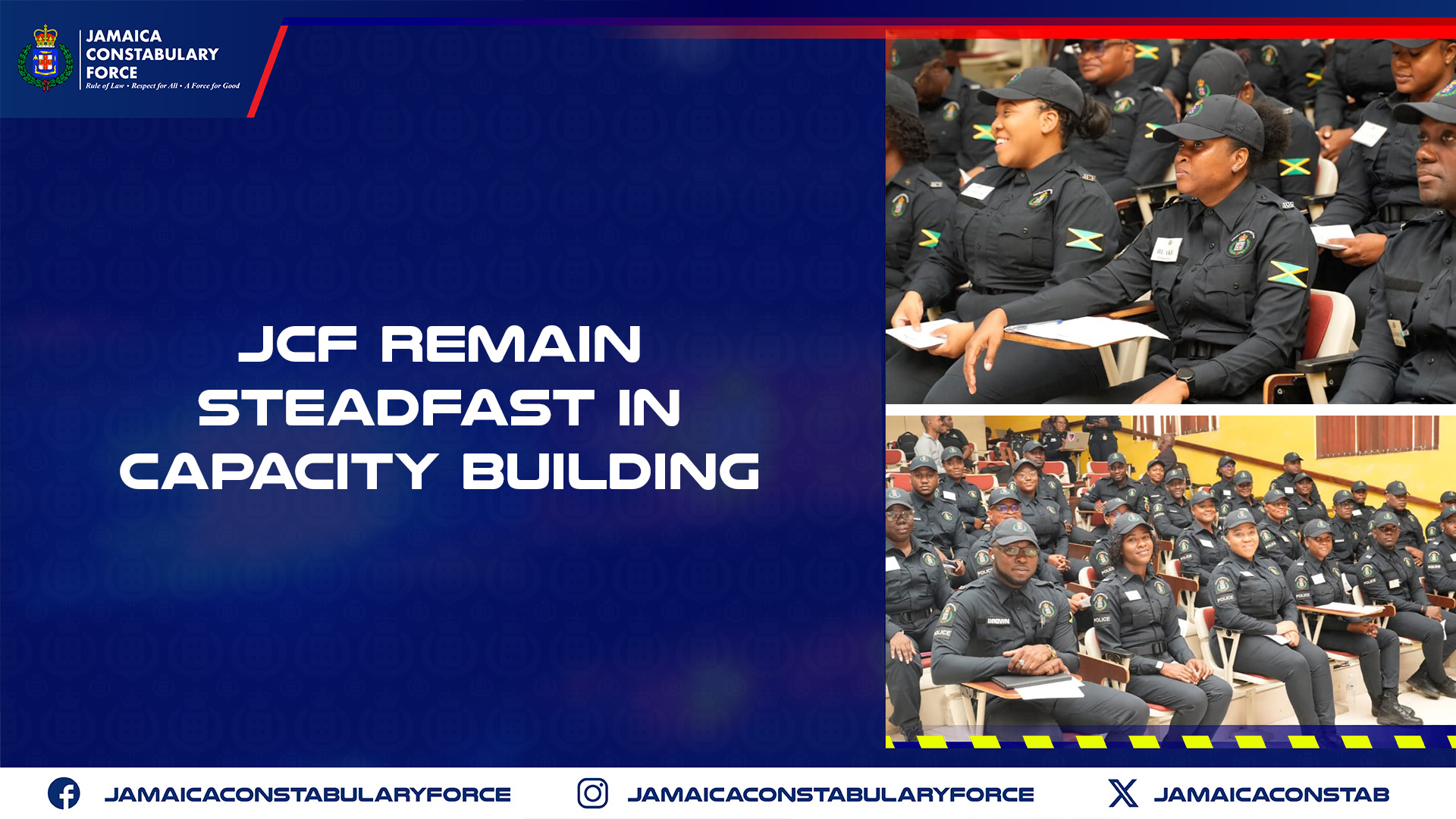
JCF REMAIN STEADFAST IN CAPACITY BUILDING
The graduation of 30 new police, including supernumerary Sergeants, held on Friday, August 08 at the National Police College of Jamaica (NPCJ) marks a significant stride in the Jamaica Constabulary Force’s (JCF’s) ongoing commitment to enhancing its human capital. The course which commenced on Tuesday, July 01 consisted of Constables, District Constables and civilians. It underscores the critical importance of building the JCF’s capacity with qualified members and supervisors, a cornerstone for effective law enforcement and national security.
The infusion of well-trained personnel, particularly those stepping into supervisory roles, is vital for fostering a professional, accountable, and responsive police service that can effectively address Jamaica’s complex security challenges. The strategic recruitment, rigorous training, and continuous professional development of its members are paramount to the JCF’s ability to maintain public order, combat crime, and build community.
The JCF’s strategic priorities are deeply intertwined with its capacity-building initiatives. One of the primary strategic priorities is the modernization and professionalism of the force. This involves not only equipping police with the latest tools and technology but, more importantly, instilling in them a strong ethical framework, advanced investigative skills, and a commitment to human rights. The NPCJ and its academic team, plays a pivotal role in this by providing comprehensive training that goes beyond basic policing techniques; but also involves community policing strategies, and leadership development. The graduation of supernumerary Sergeants and constables is particularly impactful as these individuals will be instrumental in guiding and mentoring junior members, ensuring adherence to best practices and upholding the JCF’s standards of conduct.
Assistant Commissioner of Police Christopher Phillips in charge of Area 5, and guest speaker at the ceremony in his charge to the newly appointed lawmen and women, states. “Capacity building is very vital in the JCF that is now being built.” “I challenge you to not only be involved in the transformation but be game changers in your field. Stay vigilant, stay curious.” ACP Phillips charged.
Meanwhile other senior members expressed that a well-trained and professional police force is inherently more trustworthy. When citizens perceive officers as competent, fair, and respectful, they are more likely to cooperate with law enforcement, report crimes, and participate in crime prevention efforts. The emphasis on quality over quantity in recruitment, as evidenced by the rigorous selection process for NPCJ cadets directly contributes to this objective. Furthermore, the JCF’s focus on community policing, which requires police to engage proactively with citizens and understand local concerns, necessitates a highly skilled and empathetic workforce, for which these men and women are trained.
The JCF also prioritises reducing crime and violence. This objective is directly supported by the presence of qualified and well-supervised police. Effective crime fighting requires not only reactive responses but also proactive intelligence gathering, sophisticated investigative techniques, and strategic deployment of resources. Supernumerary Sergeants, with their enhanced training and leadership capabilities, are crucial in coordinating operations, analysing crime trends, and implementing targeted interventions. Their ability to lead teams effectively can significantly improve the JCF’s operational efficiency and success rates in apprehending criminals and disrupting criminal networks.
Finally, the JCF is committed to enhancing internal accountability and discipline. A strong supervisory cadre is essential for maintaining discipline within the ranks and ensuring that officers adhere to the JCF’s code of conduct. The ongoing investment in human capital through the NPCJ is not merely an expenditure but a strategic investment in Jamaica’s future security and stability.







